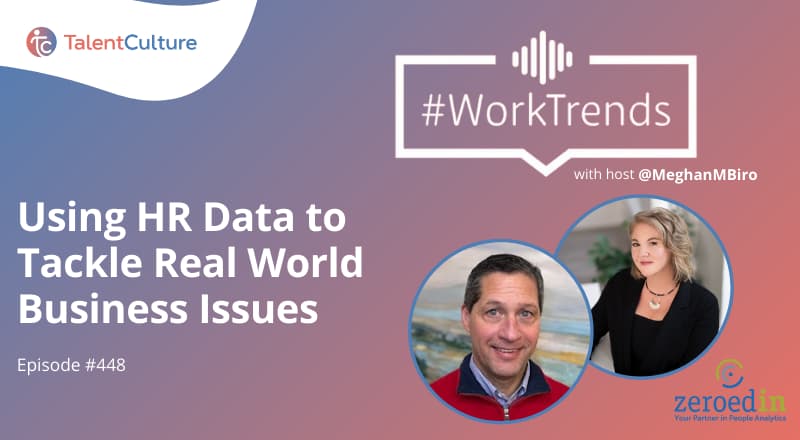Using HR Data to Tackle Real-World Business Issues

Not long ago, trying to glean insights from HR data was a frustrating process at best. Relevant information was usually locked away in siloed systems. Even when data was accessible, it was often incomplete, inconsistent, or outdated. Not exactly a recipe for success.
These days, we face a different kind of problem. Employers are drowning in data. Last year, 91% of business leaders told Oracle the sheer volume of data limits their organization’s success.
So now, we’re looking to find the right data and apply it as quickly as possible. In other words, we need smarter ways to separate the signal from the noise, so we can make better-informed decisions at the speed of business.
With this in mind, how would you answer these questions?
- Does your organization use people analytics intelligently?
- What insights do you lack that could help move your agenda forward?
If you care about the role of data in HR and talent strategies, you’ll want to listen closely to this WorkTrends episode featuring Keith Goode, VP of Client Services at ZeroedIn Technologies and presented by Meghan Biro founder of Talent Culture. For more than a decade, Keith has led implementation and support efforts for the ZeroedIn platform, which helps employers transform HR, talent, and business data into actionable intelligence.
With over 20 years of experience in delivering solutions for some of the most recognized leaders in human capital management and business intelligence, Keith has a wealth of expertise in solving critical business challenges with data mining, collective listening, machine learning, predictive modeling, and other advanced analytics practices.
Here are a few highlights from the conversation…
TOP TAKEAWAYS
- Without a purpose, tech has little or no value. Start with a meaningful business problem and tap into people who know how to peel back the data onion and inform your decisions.
- Choose tools designed for your data challenge. Innovative technology is exciting, but it may not be built for your purpose. Avoid missteps by being mindful about the basic information you need to gain from your data. Then focus on tools that can deliver actionable insights over time.
- It’s not just about using HR data. Consider the broader context. Choose tools that fit into your organization’s workflows and IT ecosystem. They should also have the flexibility to adapt to your business functions and systems as they evolve.
